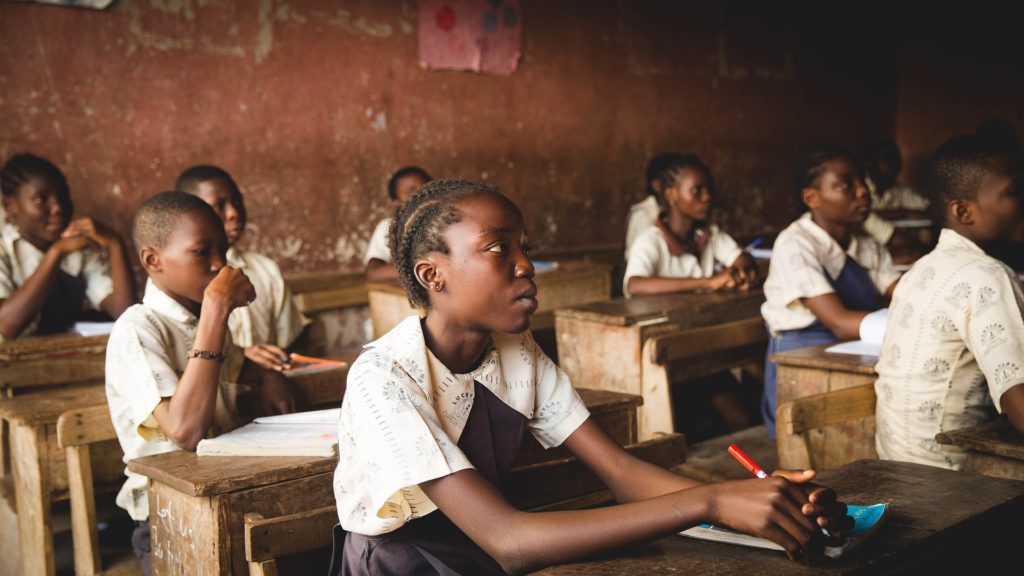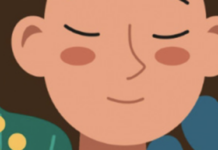By Gijs van den Broeck
 My Story
My Story
This essay is the result of my own experience as a teacher. For little over a year, I taught in a secondary school in Brussels, Belgium—a school with many inner city kids from immigrant and/or working class backgrounds. Many of my students had difficult family situations.
Many of them were deemed ‘bad students’, ‘disobedient’, ‘not motivated’, or even ‘stupid.’ Classes were chaotic, and it was quite difficult to grab their attention. Most teachers seemed to respond to this with anger and punishment, often with little success. Many of the students, on their part, replied to this repression with the same amount of anger. Needless to say, things could get quite tense. At times, the whole school building just seemed to be teeming with anger and suppressed emotions.
This is the school I came into. It was my first experience as a teacher and I had just spent a year as an intern in Plum Village. The contrast could not have been any greater. But I told myself: if anyone was to go and make something good come out of these kids, it had to be me because I was armed by Thay’s teachings. I would not let my practice and myself get sucked into these negative emotions. So I did what Thay taught me when things got out of hand: I breathed, I smiled, I tried to see the situation from their point of view.
Though this got some respect from my students and stopped them from being angry at me, I still did not manage to teach my classes in an orderly way. Many of them still interrupted class, and could not sit still and cooperate for one hour. I felt that many of them did not want to be there, and I felt I could not—and did not want to—force them into doing things they did not want to do. Thay’s teaching had made me very wary of anger. So I felt anger and punishment were just poor attempts to try and mend a situation that was unwholesome at its core.
The whole situation seemed way beyond me to transform, regardless of how diligent I had practiced with Thay. I felt a change was needed on a more systemic level, so I started reflecting on our traditional educational system and how it could be changed for students to want to be there and cooperate as well as to make normal, healthy relationships possible between teachers and students instead of the repressive atmosphere that existed. Instead of people telling them what to do, I felt what the students needed most was someone they could trust and relate to, and someone who trusted them and gave them space to find their own way. This eventually led me to quitting my job as a teacher, because I felt I was part of an unwholesome system that I did not believe in. Here is how I came to my conclusion.
Education: The Fundamentals
What constitutes a good education? What are the basic conditions that should be met for any sort of training to be fulfilling? And, most importantly, what do children and teenagers need in order to grow and realize their full potential? These are questions anyone engaged in the training of our young—or in any sort of training for that matter—ought to ask themselves, but often get buried underneath the day-to-day drag of school books, tests and curricula.
My experience is that children mostly need love, trust and acceptance. I think any teacher ought to fundamentally believe in the potential of their pupils. They have to accept every kid as they are and believe in their innate qualities and possibilities to develop themselves. Only then will they have the ability to grow and flourish. Therefore, children need the freedom to explore. They need to be able to discover what they are passionate about and what they are good at. For that they need the trust and acceptance of their teacher, and some guidance and encouragement along the way. In the spiritual world, we find this way of teaching quite obvious. For some reason, in standard education, different rules seem to apply.
To read further, click here to visit Gijs’s blog.

















As a teacher, I felt like you did not offer concrete solutions. Leaving the system is not a solution. If there are any other helpful means you could provide, it would be much appreciated.
Hi Bonnie
Thanks for your comment. I did not offer any solutions (yet), that is true. Lately I am getting more and more into ‘unschooling’, a pedagogic theory that reflects many of my beliefs. I find this to be a very inspiring documentary: http://www.etreetdevenir.com/EED.en.html. I actually saw it in Plum Village and it was one of the things that inspired me for my essay.
Best wishes
Gijs